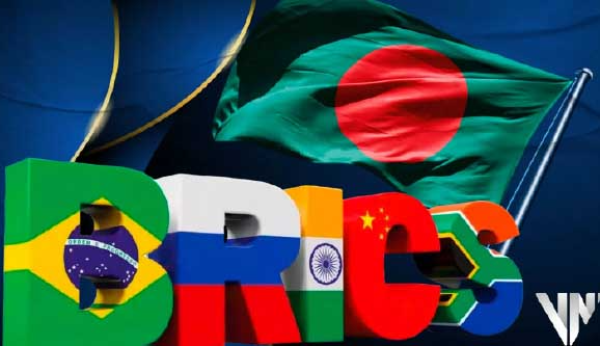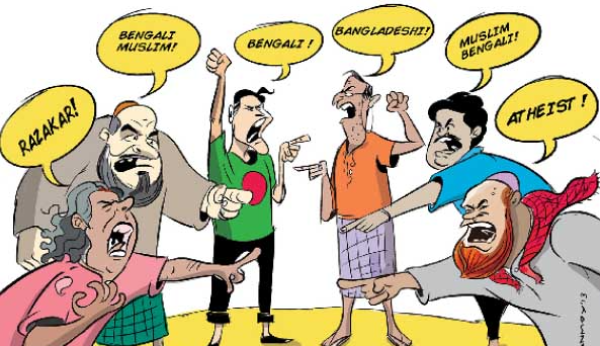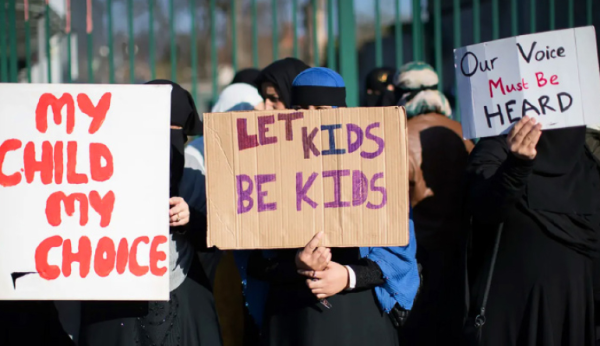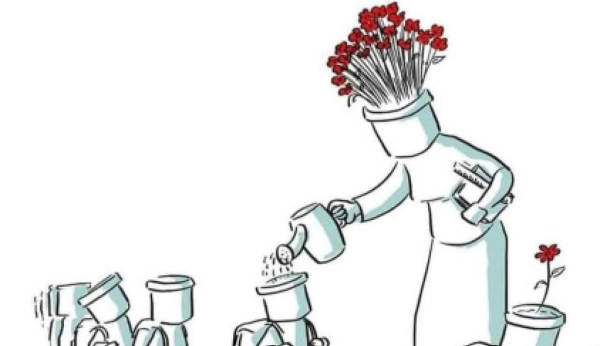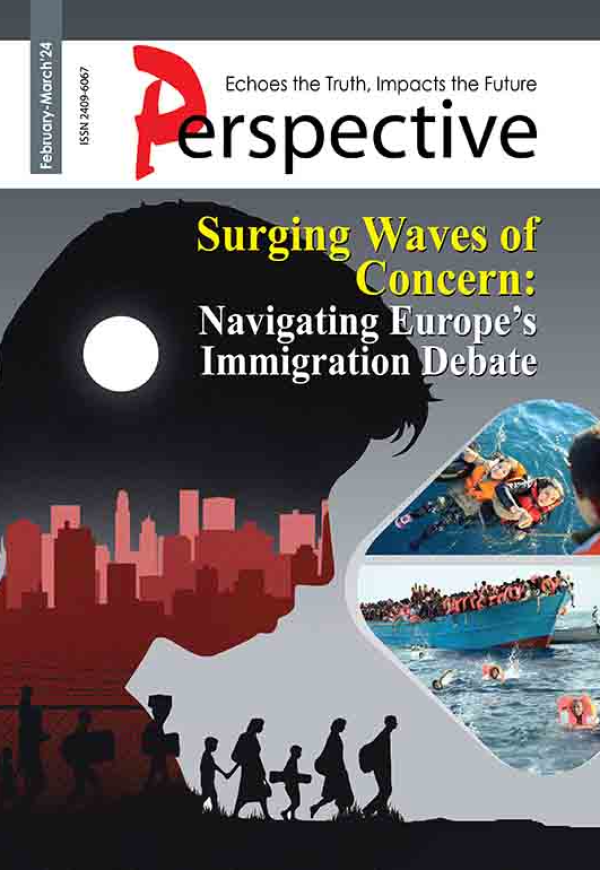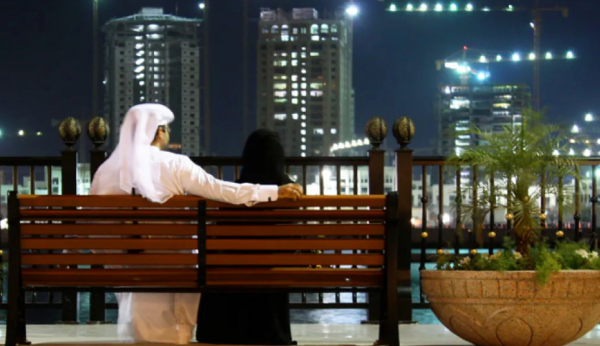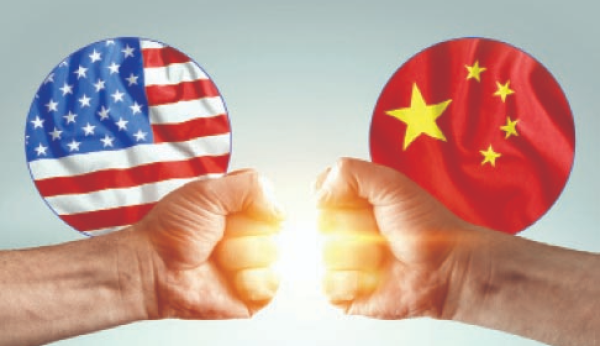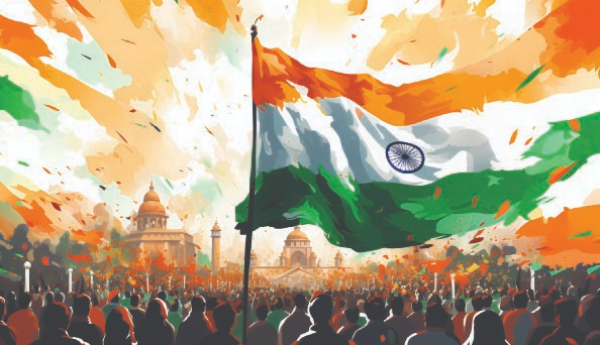Bosnia Genocide 1995 : A Legacy of Bloodsheds
Bosnia Genocide 1995 : A Legacy of Bloodsheds
The Srebrenica (Bosnian) Genocide occurred in July 1995, during the Balkan Civil War. Since World War II, there has not been such a mass killing in Europe. When the Balkan wars began in the early 1990s, Bosnia’s Sarajevo, predominantly resided by Muslim, was held hostage for three years and eight months.
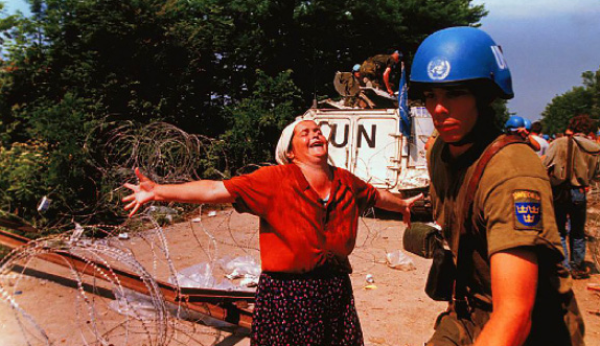
The Srebrenica (Bosnian) Genocide occurred in July 1995, during the Balkan Civil War. Since World War II, there has not been such a mass killing in Europe. When the Balkan wars began in the early 1990s, Bosnia’s Sarajevo, predominantly resided by Muslim, was held hostage for three years and eight months.
Caught in the various political whirlwinds of the Muslim world throughout the 20th century, we have never been able to give due importance to the rights of the Balkan Muslims. The killing of 8,000 Muslims in Srebrenica in 1995 was the most infernal massacre of the war. Muslim men and boys were selectively killed, then mass graved. Sadly, the operation against Muslims led by General Ratko Mladic was carried out in an UN-declared safe zone.
Neighboring Serbia and, to a lesser extent, Croatia, pounced on an unarmed Bosnia with their superior military power to brutally suppress Muslim aspirations for independence. His subsequent history is more or less known to all. About 70% of Bosnia’s land was blocked by the aggressors; the whole country became a concentration camp. About 2 million innocent Bosnians were killed, many women were raped and a large number of Bosnians were left without a country.
There is no precedent for such genocide in Europe at this time. This campaign of ethnic and religious cleansing went on for four long years in the bowels of secular Europe, but the conscientious policy-makers and secular politicians of the West did not actually say a word to it. They have limited their activities to peaceful statements and calls for an end to war. Western policy makers would not have been so silent if such genocide had been committed against Christians elsewhere in Europe instead of the Bosnian Muslims.
The tragedy in Bosnia is actually a crusade by bigoted Serbs and Croats against the Muslims there, made possible by the tacit approval of the entire West. The purpose of this massacre was to completely eradicate the claim of self-establishment of Bosnian Muslims as a nation and to wipe out any Muslim state in the bosom of Europe.
This war started in 1992. After Bosnia’s declaration of independence, Serbian troops began entering Bosnian territory. The Serbian Army was originally part of the former Yugoslav Army, which was known as Europe’s Fourth Army during the Cold War. One such force swooped on Bosnia with full force, while the Bosnian army at independence was nothing significant. Thus began an armed campaign against an unarmed nation.
From the beginning, Serbia had denied Bosnia’s independence. They wanted Greater Serbia & mainly the aim of this armed campaign was to unite Bosnia with Serbia. But the main obstacle to the Serbian plan was the Bosnian resistance, which ignited a civil war under the leadership of leader Aliah Ali. It is said that Alia built the Bosnian army from scratch with infinite patience and personal initiative. Despite the UN’s unjust embargo on arms imports, he led the people of his country relentlessly in the war of resistance.
Throughout the war, Bosnia became a death pit.Amidst this demonization and genocide, food, water and electricity supplies were disrupted in besieged Bosnia. Even humanitarian aid and relief sent by the United Nations was not allowed by the Serbs to reach the besieged towns. The UN forces deployed in Bosnia are said to have assisted the Serbs in many cases of genocide. Areas of Bosnia that UN forces were committed to protect during the war, did not do so when needed. In many cases, parts of Bosnia were demilitarized under the pretext that UN forces would provide security, but when Serbian forces rushed into the city, UN forces did not say a word. In that case, the innocent Bosnians were subjected to Serbian demonization without any resistance.
A great example of this is what the UN forces did in Sebrenica, which can be said to be the role of the Serbian fifth force. The roles of Paris and London were mysterious. They sided with the Serbs throughout the war, blocking security measures and NATO decisions in favor of Bosnia. And Russia provided overt political and military support to the Serbs. In this regard, the role of the United States is absolutely questionable. Indeed, they don’t mind if the Serbs take over Bosnia. In short, the entire Western world had decided on Bosnia that it could not survive no matter how many lives it takes. But the Bosnians didn’t let it be the way the West wanted it to be. The Bosnians’ immense resilience, infinite self-sacrifice and high morale finally defeated the Serb.
The Bosnian army grew stronger day by day even in the face of the advanced weapons and technology of the Serbs. Yes, it is true that the Bosnians paid a heavy price in this unequal war, but they could not be defeated. As Bosnia has become a symbol of misery, it has also proved to be an invincible pinnacle of resistance. Thus, Bosnia’s Sarajeto became another Stalinard of post-World War II resistance.
This situation allowed the West to prolong the day after day of talks and conferences on Bosnia so that the Serbs could establish complete control over Bosnia. On the other hand, without any attempt to stop the aggression, the Bosnian people, especially leader Aliah, have been pressured to compromise with the Serbs. By playing the role of mediator, the West has played jokes and pranks on the innocent and victimized people of Bosnia.
Then when the West saw that the people of Bosnia could not be conquered in any way, they came up with various formulas of punishment agreements. The purpose of these agreements was to divide Bosnia and restore an apparent status quo. Of these, the Val-Wayne agreement is particularly notable. According to the 1991 census, the Muslim population of Bosnia-Herzegovina was 43.47%, while the agreement gave Bosniaks 26.36% of the entire territory excluding Sarajevo. The question is natural why Bosnian Muslims will get only 30% of the territory of Bosnia despite being almost half of the total population!
Thinking of the immense plight of the people, Alia agreed to accept the Bhag-Wen Pact, which did immense injustice to the Muslims. But that too was destroyed by the stubbornness of the Serbians. As the war dragged on, the Bosnians grew stronger. At the same time their resistance was increasing. In some cases they also showed success in recapturing their lost territory from the Serbs.
Meanwhile, large parts of Bosnian territory were handed over to the Serbs. Although Aliya and members of his delegation played an important role in defending Bosnian interests, the inflexibility and determination of Aliya, especially in his old age, made Western mediators frown. Although the superpowers exerted great pressure on Ali to sign the Dayton Accords, he ultimately made a vigorous effort to assert his claim. It’s true that Aliah signed the Dayton Agreement, but did she have any other option then? How long could he continue the war in the face of Western hostility from a weak position without any help? When he was constantly threatened that if he did not sign the Dayton Agreement, UN forces would be withdrawn from Bosnia and the West would no longer be responsible for anything.
It is certainly sad that during the days of Muslim crisis in the last 20th century, the West was mostly seen as a mediator and the Muslim world was not at all successful in solving its own problems. In many cases, the Muslim leadership has been forced to digest what Western mediators have imposed from above. However, in the real background of disunity and backwardness of the Muslim world, they have agreed to accept these imposed formulas in some cases. Whoever refused to accept such an imposed formula or spoke out about his rights or advanced to advance his own decisions outside the West, he was said to be incorrigible,a terrorist. When the West cannot appreciate someone, it can be assumed that he is protecting the interests of the Muslim world.
Similar events are happening today in Palestine, Iraq, Afghanistan. Those who speak up for the interests of Muslims or show firmness in their demands are being stamped out. Alia called this hypocrisy and hypocrisy of the western world (it is politics in their language) the Inescapable Question, the question that the West has not yet answered. Alia also wrote her autobiography under this name in which she scrutinizes the hard rocks of life and shows us this picture of the West with her fingers in front of us, which can help us open our eyes.
Did the war in Bosnia leave any lessons for us? If it is said on behalf of the Muslim world, it is a proof of their utter failure. Apart from lip service, the Muslim world could not do anything important for Bosnia in a deeper sense. And if analyzed from the context of Bosnian Muslims, it would be a glorious example of anti-imperialism and hegemony. The Bosnian hero has shown us how to deal with a formidable enemy from scratch. Today, the Muslim leadership is completely passive before the military hegemony of the West, and their role in countering the imperialist attacks and plots against the Muslim world is almost non-existent. Aliya’s leadership shows us the political and military strategies to counter imperialism today and can be modeled by the Muslim leadership of the time.
Needless to say, if Aaliyah had been a European Christian or Jew, she would have won dozens of international awards by now. On the other hand, we also could not portray him in a proper sense.
Even in the face of a hundred adversities, the idea of Islam was at the center of his thinking. He also pondered the problems of the Muslim world, and devised strategies to solve them. The speech he gave at the OIC conference held in Tehran in December 1997 is a reflection of these thoughts. This is not just the speech of the leader of the delegation, but also the deep prayer of his heart.
The great leader, Alia Ali Izzet begvic is a brutal witness to the horrors of the Bosnian War. When we talk about the war in Bosnia, we will remember the story of Alia. Alia became lonely with every incident of this war. The invincible story of the resistance war of the Bosnian people has been made possible by the hands of Aliya. Without Alia’s leadership, the story of this war of resistance might have been seen differently. Because of Aliya, the events of Spain were never repeated in Bosnia.
In this day of deep crisis of the Bosnian Muslims, we see Alijah Ijjetbegvic as their leader. His forceful personality, razor-sharp logic ignited the possibility of saving the Bosnian Muslims from the brink of destruction. In the plight of the Bosnians, he conducted a global political and diplomatic campaign for the existence of his state, while also organizing the Bosnian resistance war against the aggressor Serbs. Fighting a strong opponent from a weak position is not easy. It was not easy for him to conduct a war for a long time in front of the apathetic neglect and indifference of the entire West.
Aliyah passed away (Oct 19, 2000). But he left behind a model. A model of action, achievement, struggle and merit. Alia himself once said, ‘I don’t feel the need to live without work.’ This model of Aliyah can be followed in a profound sense if the Islamic world is to effectively change its destiny.
 Nadimul Islam
Nadimul Islam 
